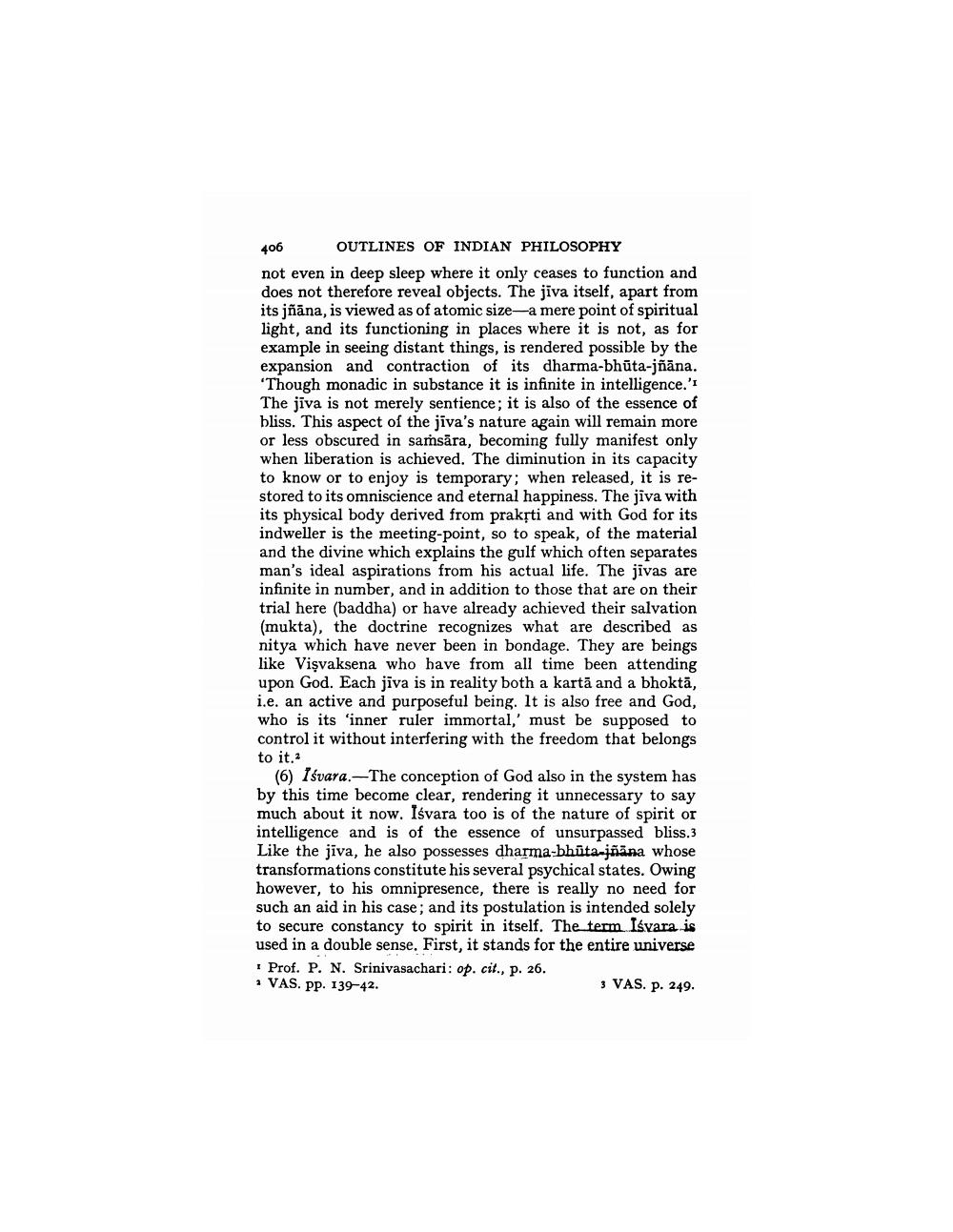________________
406
OUTLINES OF INDIAN PHILOSOPHY not even in deep sleep where it only ceases to function and does not therefore reveal objects. The jiva itself, apart from its jñāna, is viewed as of atomic size—a mere point of spiritual light, and its functioning in places where it is not, as for example in seeing distant things, is rendered possible by the expansion and contraction of its dharma-bhūta-jñāna. 'Though monadic in substance it is infinite in intelligence.'r The jiva is not merely sentience; it is also of the essence of bliss. This aspect of the jiva's nature again will remain more or less obscured in samsāra, becoming fully manifest only when liberation is achieved. The diminution in its capacity to know or to enjoy is temporary; when released, it is restored to its omniscience and eternal happiness. The jiva with its physical body derived from praksti and with God for its indweller is the meeting-point, so to speak, of the material and the divine which explains the gulf which often separates man's ideal aspirations from his actual life. The jivas are infinite in number, and in addition to those that are on their trial here (baddha) or have already achieved their salvation (mukta), the doctrine recognizes what are described as nitya which have never been in bondage. They are beings like Vişvaksena who have from all time been attending upon God. Each jīva is in reality both a kartā and a bhoktā, i.e. an active and purposeful being. It is also free and God, who is its 'inner ruler immortal,' must be supposed to control it without interfering with the freedom that belongs to it.2
(6) Iśvara.-The conception of God also in the system has by this time become clear, rendering it unnecessary to say much about it now. Isvara too is of the nature of spirit or intelligence and is of the essence of unsurpassed bliss.3 Like the jiva, he also possesses dharma-bhūta-jñāna whose transformations constitute his several psychical states. Owing however, to his omnipresence, there is really no need for such an aid in his case, and its postulation is intended solely to secure constancy to spirit in itself. The term Isvara is used in a double sense. First, it stands for the entire universe
Prof. P. N. Srinivasachari: op. cit., p. 26. 1 VAS. PP. 139-42.
3 VAS. p. 249.




